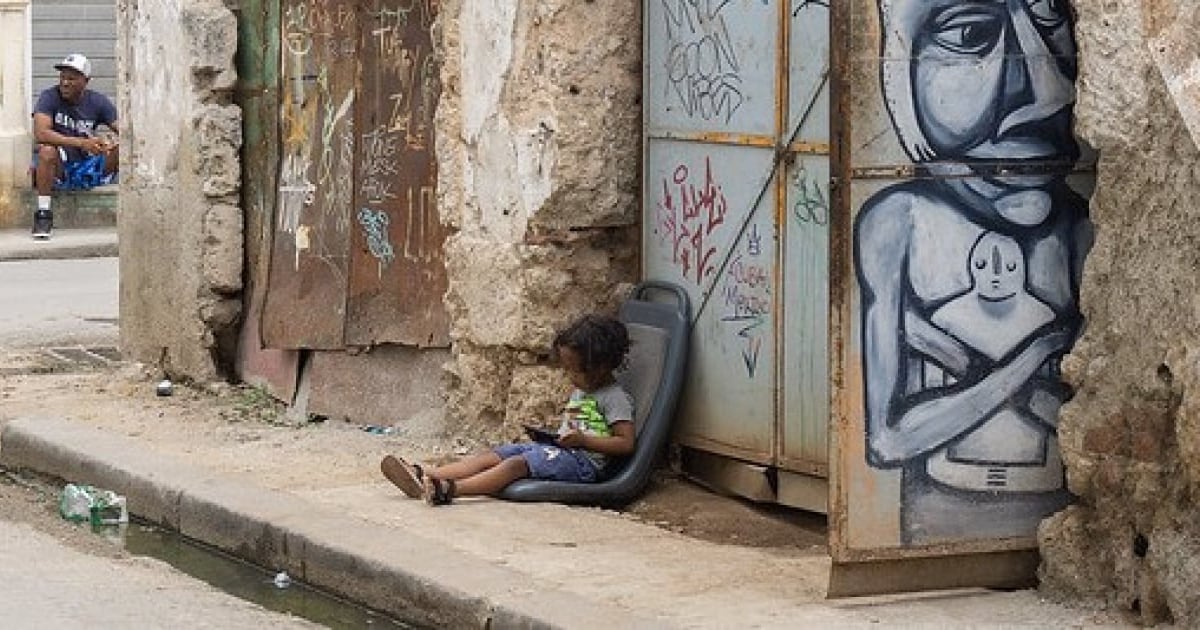
The United Nations Children's Fund (UNICEF) published a report that includes Cuba in its assessment of child nutrition.
UNICEF reveals that 9% of children in Cuba suffer from severe food poverty. This condition implies that minors have access to a maximum of two out of the eight essential foods for a healthy life.
Despite this alarming situation, the UNICEF office in Cuba has avoided commenting on the matter, maintaining on its website statements about the high level of child protection and development on the island.
This contrast between the reality presented in the report and the official stance highlights the fragility of the achievements of the Cuban regime in terms of child protection.
The UNICEF report details that, among children affected by severe food poverty, four out of five are mainly fed on breast milk and dairy products, along with a staple food rich in starch, such as rice, corn, or wheat.
Only 10% of these children consume fruits and vegetables, and less than 5% receive proteins from sources such as eggs, meat, poultry, and fish.
At a global level, severe food poverty affects 27% of children under the age of five, which is equivalent to 181 million children.
In Latin America, the figure is 9% for severe food poverty and 28% for moderate food poverty. Somalia presents the worst scenario, with 63% of its children suffering from this condition.
UNICEF emphasizes that child food poverty is a result of precarious food environments, inadequate eating practices, and income poverty in households.
These factors have intensified in Cuba, exacerbating inequalities instead of reducing them, as the official discourse of the regime claims.
What do you think?
COMMENTFiled under: